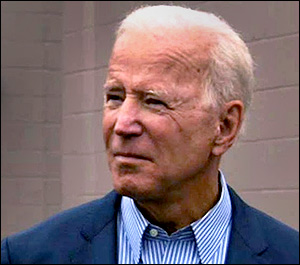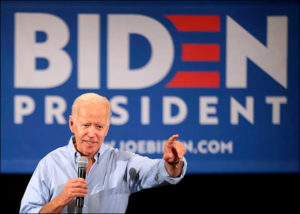By Jim Ellis

South Bend Mayor Pete Buttigieg
It is obvious that the potentially returning candidates are flirting with a new effort because they don’t perceive any of the active contenders as being in position to win the nomination outright or who can successfully oppose President Trump in the general election.
Now, we see a new complicating factor as an Iowa poll released Tuesday finds South Bend Mayor Pete Buttigieg grasping the lead away from both former Vice President Joe Biden and Sen. Elizabeth Warren (D-MA).
According to the new Monmouth University survey (Nov. 7-11; 451 likely Iowa Democratic caucus attenders) Buttigieg claims first place with a 22 percent preference factor. Biden and Warren follow with 19 and 18 percent, respectively. Sen. Bernie Sanders (I-VT) secures fourth position with 13 percent.
The Monmouth poll is attracting headlines because it produces a new leader, and thus a new story line for a media horde always looking for a different narrative or angle. It may, however, be premature to suggest this one poll is the beginning of a new trend in the Democratic battle especially when it is the only survey drawing such a conclusion.
Two other pollsters ran surveys in a similar time frame and arrive at entirely different results. The Morning Consult large sample online survey (Nov. 4-10; 16,400 likely Iowa voters) projects a ballot test standing like we saw when the campaign was in its early stage: Biden 32 percent; Sanders 20 percent; Warren 19 percent; Buttigieg eight percent.






 June 28, 2019 — Several polls were released just before the presidential debate series began and we see some inconsistency. Former Vice President Joe Biden leads in the most recent national surveys, but by varying margins.
June 28, 2019 — Several polls were released just before the presidential debate series began and we see some inconsistency. Former Vice President Joe Biden leads in the most recent national surveys, but by varying margins.